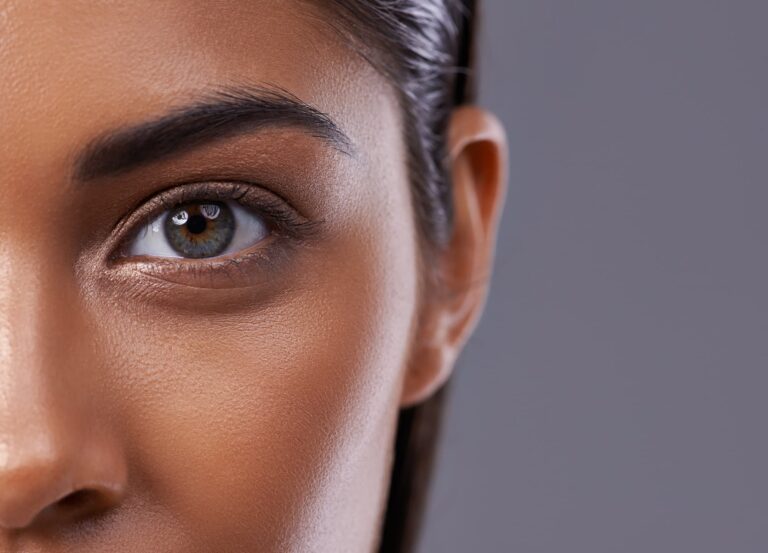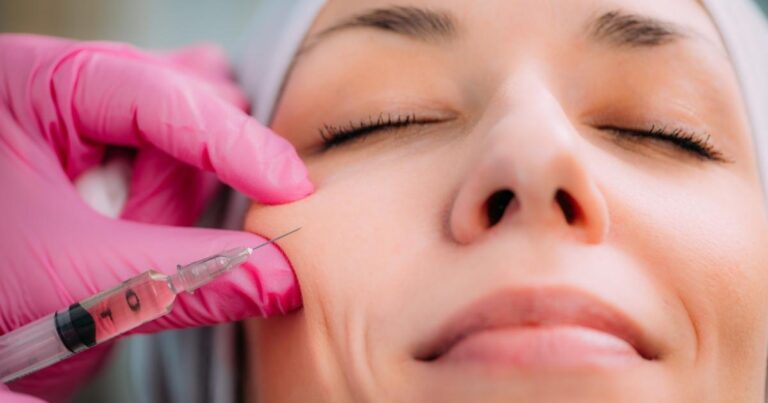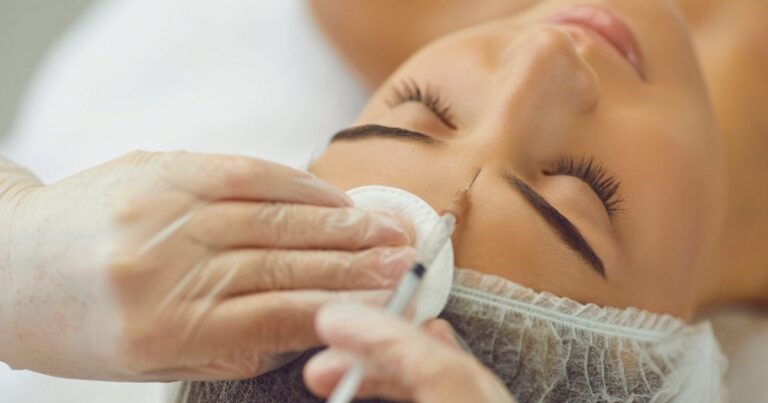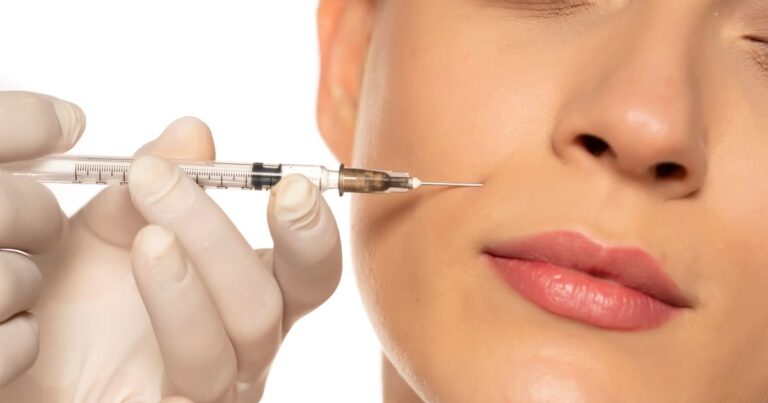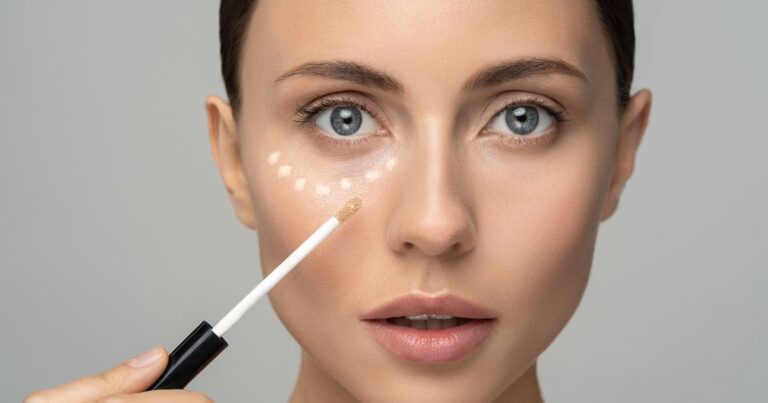Dermal fillers have become a popular minimally invasive procedure for youthful, radiant skin. However, the success of these treatments is not solely dependent on the practitioner’s expertise but also on how well you take care of your skin post-treatment. This guide explores maximising your filler results, extending their longevity and maintaining their aesthetic appeal.
The Importance of Post-Treatment Care in Maximising Your Filler Results
Post-treatment care plays a vital role in optimising and prolonging the results of filler treatments. It involves appropriate skincare, lifestyle adjustments, and follow-up appointments. Proper care can also help minimise any potential side effects or complications.
- Immediate aftercare: The first few hours post-treatment are crucial for avoiding complications such as bruising or swelling.
- Long-term care: Prolonged filler effects require regular skincare, healthy lifestyle habits, and timely follow-up appointments.
- Potential complications: Understanding possible fillers complications help recognise and address them early to prevent long-term adverse effects.
Initial Care After Filler Injections: The First 24 Hours
The first 24 hours after receiving a filler treatment are crucial for minimising side effects and maximising results. It’s important to avoid strenuous activities, excessive heat, and touching the treatment area. Following the advice of your aesthetic practitioner during this period is vital.
- Avoid physical strain: Strenuous activities can exacerbate swelling and delay healing.
- No touching or rubbing: Disturbing the treatment area can cause filler migration and uneven results.
- Stay calm: High temperatures can increase swelling, so avoid saunas, hot showers, and sunbathing.
Coping with Swelling and Bruising: Techniques and Remedies
Swelling and bruising are common post-treatment reactions that usually resolve within a week. Cold compresses, elevating the head during sleep, and over-the-counter medicines can alleviate these symptoms. A diet rich in antioxidants can also help speed up recovery.
Book A Consultation With Dr Tarek Bayazid
Top-rated Plastic Surgeon For Fillers in Dubai
Installment Plan Available
- Cold compresses: A cold compress can soothe the treated area and reduce swelling.
- Elevation during sleep: Elevating your head can minimise swelling and promote faster healing.
- Dietary changes: Consuming pineapple and turmeric, known for their anti-inflammatory properties, may help reduce bruising and swelling.
See related: Botox vs fillers which one is right for you?
Skin Hydration: Key to Enhancing and Preserving Filler Effects
Maintaining well-hydrated skin can enhance the effects of fillers and help prolong their longevity. A routine involving a high-quality moisturiser and drinking plenty of water is beneficial. Also, certain skincare ingredients, like hyaluronic acid, can help retain moisture in the skin.
- Regular moisturising: Using a good moisturiser regularly helps to keep the skin hydrated and maintains the elasticity of the skin.
- Hydrating ingredients: Look for skincare products with hyaluronic acid and ceramides that help retain skin moisture.
- Stay hydrated: Drinking water daily can improve skin hydration and overall health.
The Role of Nutrition in Optimising Your Filler Results
A healthy diet can aid the healing process post-treatment and help maintain the effects of fillers. Foods rich in antioxidants, vitamins, and protein can enhance skin health and recovery. Meanwhile, reducing sugar and processed food intake can help prevent premature ageing and prolong the results of your treatment.
| Food Group | Examples | Benefits |
| Antioxidants | Berries, spinach, nuts | Promotes skin health and healing |
| Protein | Chicken, fish, lentils | Aids in tissue Repair |
| Low Sugar | Whole grains, fruits | Prevents premature ageing |
Influence of Physical Activity on Filler Outcomes
While moderate exercise can improve circulation and skin health, strenuous activity soon after treatment can negatively impact results. Experts recommend avoiding vigorous exercise for at least 24-48 hours after getting fillers. Subsequently, adopting a balanced exercise routine can promote overall wellness and skin health.
| Exercise Type | Examples | Benefits |
| Post-Treatment Rest | N/A | Prevents swelling, bruising |
| Moderate Exercise | Walking, yoga | Improves circulation and skin health |
| High Impact Exercise | Running, HIIT | Not recommended post-treatment immediately |
The Significance of Adequate Sun Protection Post-Treatment
Sun exposure can lead to premature ageing and degradation of fillers. Using a high-SPF sunscreen, wearing protective clothing, and avoiding peak sun hours can prevent sun damage. Incorporating these measures into your daily routine is essential for long-lasting results.
| Sun Protection Type | Examples | Benefits |
| Sunscreen | Broad-spectrum SPF sunscreen | Shields skin from harmful UVA and UVB rays |
| Clothing | Hats, sunglasses, long-sleeved clothing | It provides an additional physical barrier |
| Timing | Avoid outdoors during peak sun hours | Minimises direct sun exposure |
Impact of Smoking and Alcohol on Filler Longevity
Smoking and excessive alcohol consumption can accelerate ageing and diminish the results of filler treatments. These habits can reduce blood flow to the skin, impairing healing and collagen production. For optimal results, it’s advised to quit smoking and limit alcohol intake.
| Lifestyle Factor | Impact on Skin | Recommendation |
| Smoking | Accelerates ageing, impairs healing | Quit for optimal results |
| Alcohol | Dehydrates skin, impedes healing | Limit intake for best results |
How Quality Sleep Contributes to Improved Filler Results
Quality sleep aids in skin repair and rejuvenation, enhancing the results of your filler treatment. Lack of sleep can lead to increased stress hormones, accelerating ageing. Prioritising a healthy sleep schedule can benefit overall health and cosmetic outcomes.
| Sleep Factor | Impact on Skin | Recommendation |
| Adequate sleep | Promotes healing, rejuvenation | Prioritise a healthy sleep schedule |
| Poor sleep | Increases stress hormones, accelerates ageing | Improve sleep quality |
| Sleep hygiene | Supports quality sleep | Create a relaxing bedtime routine |
Regular Follow-Up Appointments: Ensuring Optimal Outcomes
Regular follow-ups with your aesthetic practitioner are crucial to maximising the results of your filler treatments. These appointments allow for the evaluation of results, adjustment of treatment plans, and early detection of complications. Timely follow-ups ensure that you receive optimal care tailored to your needs.
- Evaluation of results: Follow-up appointments help monitor treatment progress and results.
- Tailored treatment plans: Adjustments can be made to the treatment plan based on individual responses to fillers.
- Early detection of complications: Regular visits to the practitioner can ensure early detection and management of potential complications.
See related: Dermal fillers cost in Dubai
A Long-term Approach: Lifestyle Changes for Sustained Results
While post-treatment care is vital, long-term lifestyle changes can ensure sustained results from filler treatments. Healthy eating habits, regular exercise, adequate sleep, and proper skin care can all contribute to preserving your aesthetic results. A holistic approach to health and beauty will ensure your filler results last longer and look better.
| Lifestyle Change | Impact on Skin | Recommendation |
| Balanced nutrition | Promotes skin health | Regularly consume healthy foods |
| Regular exercise | Enhances circulation and skin health | Maintain a balanced exercise routine |
| Quality sleep | Supports skin repair and rejuvenation | Prioritise good sleep hygiene |
| Adequate hydration | Enhances skin hydration | Drink plenty of water daily |
| Avoid damaging habits | Prevents premature ageing | Limit sun exposure, reduce alcohol, quit smoking |
To prolong the effects of your filler treatments, adopt a diligent post-treatment regimen, maintain a healthy lifestyle, and schedule regular follow-ups. Effective skincare habits can enhance your treatment’s longevity and your skin’s overall well-being. Remember, maintaining good skin is a continuous journey, and each step impacts the results of your treatments.
Dr. Tarek Bayazid, a leading plastic surgeon in Dubai, stands out for his facial rejuvenation and body contouring expertise. Trained under top European surgeons, he’s acclaimed for innovative procedures like the ‘composite deep plane facelift’ and minimally invasive techniques. With a patient-centric approach and an artistic eye, Dr. Tarek ensures safety and natural results, serving a global clientele.
Ready to maximise your filler results with an aesthetic maestro? Book a consultation with Dr Tarek Bayazid today.
Frequently Asked Questions (FAQs)
What can I do to maximise my filler results?
To maximise your filler results, following the post-treatment care routine advised by your practitioner is crucial. This may include avoiding strenuous exercise, excessive sun exposure, and maintaining a healthy lifestyle with proper nutrition, quality sleep, and regular skincare. Regular follow-up appointments with your practitioner also ensure optimal outcomes.
How long do filler results usually last?
The longevity of filler results varies depending on the type of filler used and individual factors such as skin type, lifestyle, and age. Typically, hyaluronic acid fillers can last 6 to 12 months, while other fillers may last up to 2 years.
Can lifestyle habits affect my filler results?
Yes, lifestyle habits significantly influence the longevity and effectiveness of filler results. Smoking, excessive alcohol consumption, poor nutrition, lack of sleep, and inadequate sun protection can accelerate ageing and reduce the longevity of filler treatments. Healthy habits like balanced nutrition, regular exercise, quality sleep, and good skin care can enhance and prolong filler results.
What are the potential side effects of filler treatments?
Some common side effects of filler treatments include swelling, redness, bruising at the injection site, and slight discomfort. These usually subside within a few days. If you notice any unusual side effects or these symptoms persist, consult your practitioner immediately.


